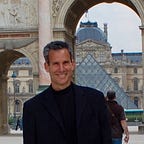The Week in Tweets: Season 1, Episode 8 (The Don’t be Evil Edition)
by Neil Turkewitz
This past week’s Twitter copyright/internet governance news was dominated by discussion of an article by Ross LaJeunesse, Google’s former head of international relations and present Senate candidate in Maine concerning his disenchantment with Google, and with the celebration of Public Domain Day. In both cases, high levels of cognitive dissonance were on display. Far too many observers characterized LaJeunesse’s indictment as relating uniquely to ethics, and completely overlooked his core argument that companies can not operate free from government oversight. David Kaye, UN Special Rapporteur on the promotion and protection of the right to freedom of opinion and expression, went so far as to publicly ask “what happened to don’t be evil” without any sense of irony that he has championed and thereby helped to cultivate an environment in which companies are freed from the consequences of their conduct.
As for Public Domain Day, celebrants failed to recognize that joy about works falling into the public domain was in fact a celebration of the role of copyright in promoting the creation and distribution of works to which access is desired — even after a lengthy period of time. The public domain isn’t a counterpoint to copyright, it is part and parcel of the copyright ecosystem. And most importantly, it is not the point at which the public receives the greatest benefit of the “copyright bargain” contemplated in Article 1, Section 8, Clause 8. That benefit takes places much earlier in the product cycle by fueling creation itself.
